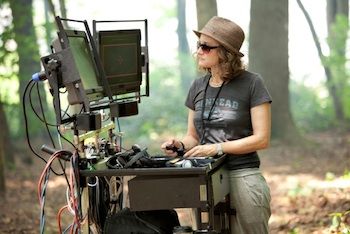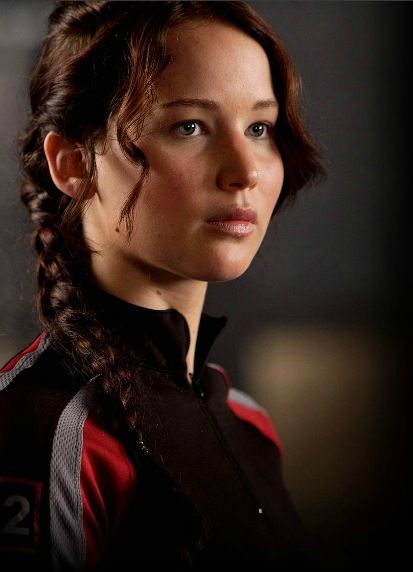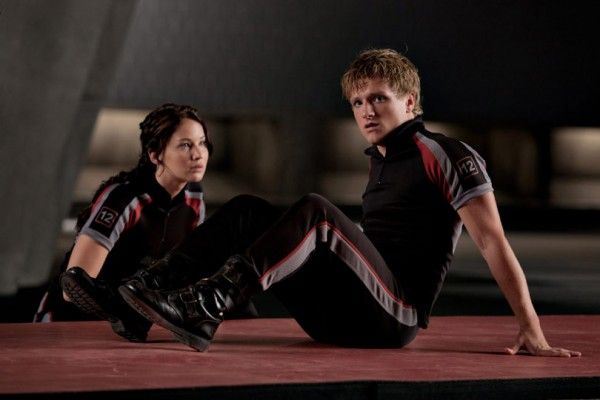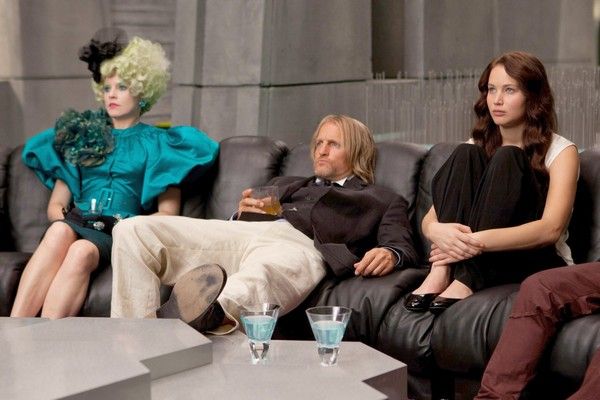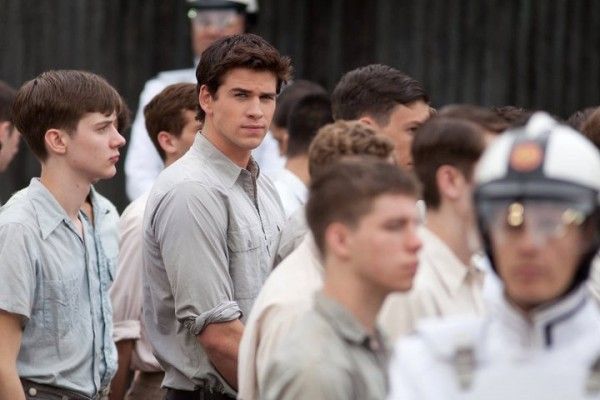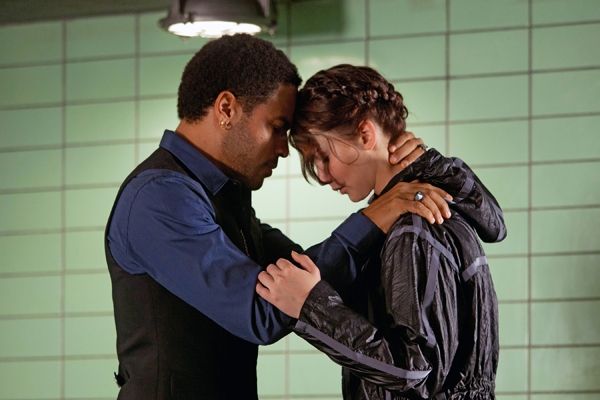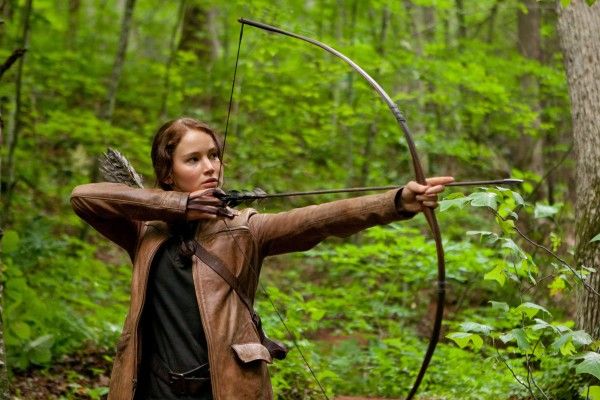Producer Nina Jacobson bought the rights to The Hunger Games novel in 2009, just as it was beginning to find a devoted audience. Now, with over 26 million copies of the trilogy in print in the U.S. alone, it has undeniably become a global phenomenon. And when the big screen adaptation hits theaters on March 23rd, everyone will become familiar with the nation of Panem and its heroes and villains, and it will send the film’s cast into a whole other level of stardom.At the film’s press day, Nina Jacobson talked about what originally led her to The Hunger Games, the importance of choosing a director like Gary Ross whose instincts come from character, making sure that the tonal bandwidth for the film stayed consistent throughout all of their choices, the greatest challenges of bringing this material to the big screen, deciding how to approach the violence in the story, and how, even though they just focused on making a movie that earned a sequel, she would feel like a failure, as a producer, if she didn’t get all three books ultimately made into films. Check out what she had to say after the jump:For those not familiar with the story, here’s the synopsis: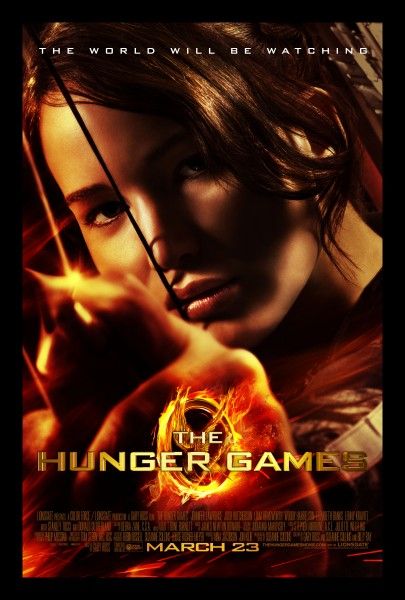
Each year in the ruins of what was once North America, the Capitol of the nation of Panem forces each of its twelve districts to send a teenage boy and girl, between the ages of 12 and 18, to compete in The Hunger Games. A twisted punishment for a past uprising and on ongoing government intimidation tactic, The Hunger Games are a nationally televised event in which Tributes must fight with one another until one survivor remains. When the young Primrose Everdeen (Willow Shields) has her name called, her 16-year-old sister Katniss (Jennifer Lawrence) volunteers to enter the Games in her place. Once there, she is forced to rely upon her sharp instincts and, if she’s ever to return home to District 12, Katniss must make impossible choices in the arena that weigh survival against humanity and life against love.
Question: What led you to The Hunger Games and bringing it to the big screen?
NINA JACOBSON: There is a young fella who works for me, named Brian Unkeless, who’s very smart. We’re a very small company that has been Brian and me and two assistants, although we’re growing a little bit now. He read the book and loved it, and told me I should read it. He had been a fan of the Gregor books. So, I read it and couldn’t put it down and couldn’t stop thinking about it. I really became obsessed with the thought of producing it, and was completely bothered by the idea that anybody but me could produce it. I felt that there were so many things that could go wrong, in adapting it, and I had this fierce desire to protect this book that she had written. At that time, I read the second book, in manuscript form, and so I saw where she was going with the series. I was able to convince Suzanne [Collins] to trust me with the books.
Being a huge fan of the book, did you have any input into the design of the film?
JACOBSON: Yes and no. Ultimately, I am very filmmaker oriented, as a producer. I think the most important thing is that you have to really choose the players carefully. It was very important to me to choose a director like Gary [Ross], whose instincts come from character, who’s a storyteller, and who puts characters first. Visually, I felt that with each movie, Gary adopts a different style. He doesn’t have one look that’s the Gary Ross look, and I thought that was important. We needed somebody who would be character based and who would find the look of the movie. Also, the hiring of Phil Messina, the production designer, was a big decision. He’s so gifted, and his ideas were always so smart and rooted in American history and architecture. Nothing feels like it’s not us, or couldn’t be us, and I think that’s very important. But, in the evolution of the movie, Gary and I talked a lot about tonal bandwidth and making sure that the look and feel and style and choices of the movie stayed within a certain consistent bandwidth.
What were the parameters for the tonal bandwidth?
JACOBSON: When you read a book, you create that tonal bandwidth. You set a tone for yourself, as you’re reading it, in which everything exists within the world of your imagination. In the book, it’s great when she can push a button and food comes up, as per your order. But, we didn’t do that in the movie because we felt that it would be too fanciful and too Oz, and that the Capitol had to actually still be ominous. It had to be a mind-blower, but it had to be ominous. Another small decision was that, in the book, Haymitch throws up on Katniss’ shoes, but if you show that in a movie, suddenly the whole scene is about a person throwing up. There’s so much important character work that gets done in that scene, that we still wanted him to be a drunk, but also menacing and having some danger to him. So, you’re not doing the scene exactly the way it is in the book, but the intention of the scene is there.
Little decisions like that were made, every day. In this movie, we really focused on Cinna and we didn’t get time to focus on the other stylist. Part of it was staying inside Katniss’ head. I love those other stylists in the books, and I hope we can bring those characters more into focus, in the next movie. But, in this movie, we decided that we really needed to focus on Cinna and Katniss’ experience. We had to be in her shoes. She had to step into the Capitol, and it couldn’t be fun. In the books, you’re really in her head. She’s able to be frightened and intimidated, and you’re also able to have fun with the stylists. In the movie, we decided that we’d focus on the Cinna relationship, and keep grounded in her fear and anticipated, and we’ll explore the stylists in the next movie, if we’re lucky, once we’ve set the stage with this one.
This is a large-scale film with a built-in following. What was the greatest challenge in bringing this material to the screen?
JACOBSON: I think it’s this balancing act of knowing that you have ardent fans. And yet, in a way, that was easy because I’m an ardent fan. All I really had to do was put myself in my own shoes. I never had to put myself in somebody else’s shoes. Deb Zane, our casting director was very sanguine, from the beginning, about just blocking out what everybody else says that they want. Ultimately, when fans get very passionate about a movie, they just want you to do it well. They don’t want you to screw it up. Their idea of doing it well might be different than yours, but ultimately, they really just don’t want you to mess up the thing that they love. So, being able to just stick to our instincts and honor the books and find a way to stay the course of trying to make the best possible decisions that you would make creatively on any movie, without having your head turned too much by all of the interest, has been a great challenge. It’s the best challenge you could ask for, but that was a big challenge.
Was it difficult to decide how to approach the violence of the story and how graphic you should make it in the film?
JACOBSON: Yes, that was obviously a huge decision. When I first talked to Suzanne about adapting the books, we knew a few things. We knew that we wanted it to be PG-13 because she wrote the book for readers 12 and up, and we wanted them to be able to see the movie. It’s a movie that is meant to be relevant to young people, and not exclude them, in any way. On the other hand, we didn’t want to dilute or soften the material because that would really be irresponsible, in its own way. The books are very intense and very demanding of the reader, and the movie should be that too.
We both felt strongly that you wouldn’t want to age up the characters, no matter the age of the actors playing the roles. They should be playing the age that they are in the books. It would let people off the hook, if you said, “Well, instead of 12 to 18, why don’t you make them 18 to 25 or 16 to 21?†If you don’t stay true to the horror of the fact that they are 12 to 18, you’re not doing justice to the book.
So, we knew that we didn’t want to pussyfoot around the intensity of the subject matter, on the one had, but that we wanted to do it in a way that was also not exploitative or guilty of the crimes of the Capitol, in any way, shape or form. If the movie were stylized violence that was pretty and fun and cool, which is great when you go see 300 or The Matrix, it would just be out of sync with the fact that they’re kids. So, we felt that the violence had to feel real, it had to feel urgent, it had to feel like you were seeing it through Katniss’ eyes, and yet it couldn’t feel exploitative, sensationalistic, or like we were having fun because the subject matter has a gravitas that has to be honored.
Since this looks to be a book movie, as a producer, how much were you thinking about the sequel while you were making this film?
JACOBSON: Well, I’m very superstitious. I come from a family that’s big on not painting the nursery until the baby is home. I’ve always tried to really focus on this movie, knowing that, yes, these are amazing books and I would feel like a failure, if I didn’t get all three of them made. I love the books. Certainly, the fans are there. They’re grown enormously since the beginning. When I first brought the books to Lionsgate, they had sold about 150,000 copies, which is a very good result for a YA book. And to their credit, Lionsgate was very excited and committed to the movie, from the beginning. At 150,000 copies, they were as present and excited to make the movie, as they were when we made the movie, which was probably about 8 million copies later. Now, it’s sold three times that.
It’s been a crazy, snowballing thing, while we’ve been making the movie. But, when we made the movie, we really just tried to keep our head down and make a movie that deserved a sequel. Ultimately, only audiences decide what’s a franchise. Only audiences decide what’s a hit. I have always been mindful of not wanting to be the Miami Heat of movies. Nobody roots for people who presume success. You have to earn success, and success is earned by making a movie that audiences like and want to see more of. There’s really no other way around it. I was an executive before I was a producer, and I’ve seen franchise fever grow, over the course of my career. The one thing that people always forget is that it’s only a franchise if audiences really want to see more of it. It’s up to them. It’s really not up to us. So, I was focused on this movie with my director, with the studio, and with the cast and crew. We all just focused on making the best possible movie we could, and earning the right to do more.
What was Suzanne Collins’ involvement, throughout the process?
JACOBSON: Suzanne was very involved in the development of the script. She wrote the first draft. She was very involved with Billy Ray, when he wrote his draft. And then, with Gary [Ross], they hit it off so well, when he was writing his draft, that they actually teamed up and wrote together, for his second draft. We had very involved conversations about the script, from the beginning through the start of production. She came and visited us during pre-production and saw some of the designs and where we were heading, and we talked to her a lot about casting. We wanted to make sure that she felt confident and comfortable with our casting choices. She was very supportive, but we very much wanted her blessing on casting. In production, she visited us once, but she really was not involved in the production process. She’s seen the movie twice, in the post-production process, once as an early cut and then once when it was finished.
Was it her choice not to be on set?
JACOBSON: Yes.
Do you think that because of Harry Potter and Twilight, that it’s easier to bring YA stories to the big screen?
JACOBSON: That’s a good question. I think part of it is that these books have genuinely crossed over. They’re really compelling books that have found an audience that has crossed over. The books make it possible, and the audience of the books make these opportunities possible, as well as the fact that people realize that they can have a communal experience with a book that wasn’t originally written for that broad of a community, but that has the appeal and the quality to actually extend to every age, and not just the age that it was originally written for.
For more Hunger Games interviews from the recent Los Angeles press junket:
Jennifer Lawrence Talks The Hunger Games, the Mall Tour, Director Gary Ross, and More
Josh Hutcherson and Liam Hemsworth Talk The Hunger Games, the Sequels, and More
Elizabeth Banks, Lenny Kravitz and Wes Bentley Interview The Hunger Games
Donald Sutherland The Hunger Games Interview
Alexander Ludwig, Isabelle Fuhrman & Amandla Stenberg The Hunger Games Interview
And if you missed it, here's 2 clips and over 6 minute of behind-the-scenes footage from the making of the film

